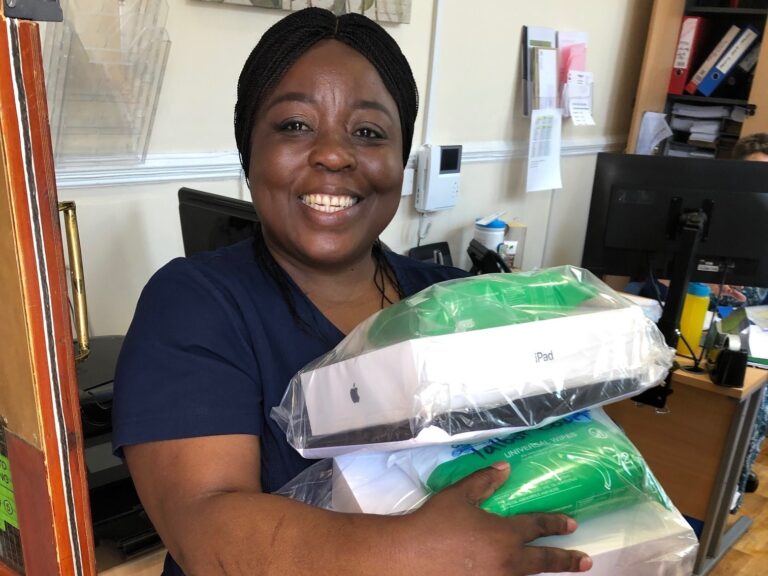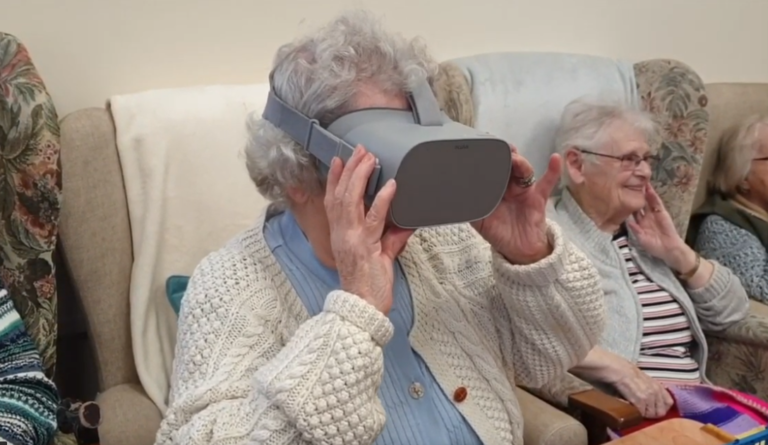There is significant potential for digital inclusion to improve the health and well-being of older people and people with a long-term health condition in Wales. The rapid growth in digital technologies brings amazing opportunities for people to become more active partners in their own care. There is a serious risk that people who are digitally excluded get left behind.
Digital inclusion in health and care

Why does digital inclusion matter for the health and social care sector?
The NHS in Wales has a vision for digital health and care in Wales – online access to records, appointment bookings and prescription requests, healthcare apps, wearables, online self-management and video consultations. National programmes for public facing services are being rolled out alongside initiatives being implemented by individual health boards.
Welsh Government acknowledges that the transformative potential of digital health services to improve access, quality, and efficiency of healthcare can only be achieved through inclusive practices that ensure everyone can benefit, regardless of their digital literacy or background.
People who are most in need of health and care (including older people and those with long term conditions and disabilities) are the least likely to be online.
- Only 87% of people in Wales with a long-standing illness, disability or infirmity use the internet, compared to 93% of those without such a condition.
- Just 87% of those aged 65-74 use the internet, compared to 99% of 16-44 year olds.
- Fewer people in Wales use the internet to manage their health than in the rest of the UK.
Business case for digital inclusion in health
Welsh Government’s Digital and Data Strategy for Health and Social Care in Wales (2023-2028) emphasises the importance of:
- Ensuring everyone has the opportunity to access and benefit from digital health services.
- Involving people in the design and development of digital services to meet their specific needs.
- Addressing the challenges of digital exclusion, such as lack of access to technology, skills, or confidence.
The business case for digital transformation of services is predicated on people having the digital skills, confidence and access to use those services.
Those with digital skills are expected to place less pressure on the NHS, by reducing the number of in person GP appointments they attend. Research from Cebr indicates conservatively that from 2023 to 2032, the NHS will save £20 million for each group of 508,000 people who are trained in each year, through a reduction in GP appointments, directly because of digital upskilling of patients. Savings would range from £20 million in 2023 to £146,9 million in 2032, which summed up over that entire period, benefits to the NHS are expected to total £899 million.
Evaluations have shown that interventions, including digital skills training:
- Improves people’s confidence in using digital health tools
- Boosts take-up of services such as online appointment bookings
- Increases self-care for minor ailments
- Saves time and money
Our work with health and care providers
Digital Communities Wales is working with all health boards and trusts in Wales. Our support ranges from practical training for clinical staff and other health professionals to develop their digital skills, to strategic support to support senior health executives integrate digital inclusion into their citizen-facing services.
As well as our work with health boards, we are working with Primary Care clusters, non-statutory care providers and the voluntary sector.




